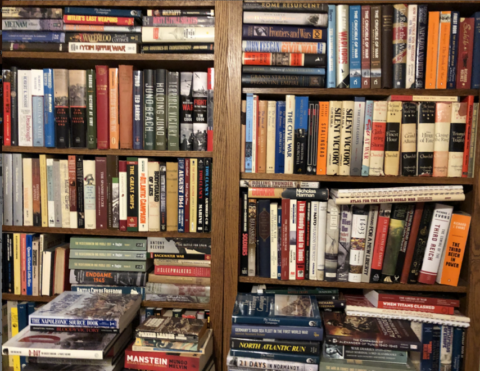In The Critic, “The Secret Author” provides a glossary for industry outsiders to understand what the apparently glowing words of a blurb on a book cover actually mean:
Like many other professions, the book trade is keen on jargon: lots of it, the more the merrier. As with those other professions, it tends to be of two kinds: outward-facing, when publishers communicate with their customers; and inward-facing, when they communicate with other publishers or the people who write the products they sell.
Its function — the function of all professional jargon, it might be said — is simultaneously to create an easily intelligible code for the benefit of insiders and (frankly) to mystify and impress those beyond the loop.
Publishers’ outward-facing jargon can be conveniently observed in the blurbs printed on book jackets. These are full of code words which, you may be surprised to learn, usually have very little to do with the contents.
A good place to start in any consideration of jacket copy might be the late Anthony Blond’s still invaluable The Publishing Game (1971), in which the one-time kingpin of Anthony Blond Ltd and various successor firms identifies the real meaning of several of the key publishers’ cliches of the late 1960s.
They include Kafkaesque (“obscure”), Saga (“the editor suggested cuts but the author was adamant”), Frank or outspoken (“obscene”) and Well-known, meaning “unknown”. To these may be added Rebellious (“the author uses bad language”), Savage (“the author revels in sadism”), Ingenious (“usually means unbelievable”) and Sensitive (“homosexual”). Blond also offers a list of OK writers (Kafka, J.D. Salinger) with whom promising newcomers may profitably be compared.
Naturally, Blond’s list is of its time: nobody these days would think of labelling a gay coming-of-age novel “sensitive”. On the other hand, if the content has been superannuated, here in 2023 very little has changed in the form — which is to say that the modern book blurb is still awash with genteel euphemism and downright obfuscation.
Sometimes a blurb-adjective means its exact opposite. Thus powerful can invariably be construed as “weak”, whilst audacious or bold generally means “deeply conventional”. Shocking, obviously, means “not shocking” and challenging “not at all challenging”.
Then there are the contemporary buzzwords: transgressive, used to describe anything even a degree or two north of the sexual or ideological status quo; or immersive, which is another way of saying “reasonably engrossing”.




